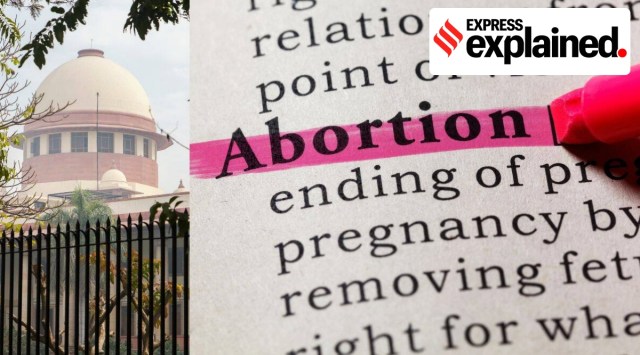Latest Comment
Post Comment
Read Comments
 On September 29, a bench led by Justice D Y Chandrachud, now Chief Justice of India (CJI), expanded the scope of reproductive rights and bodily autonomy under the MTP Act, 1971 to groups such as unmarried women, transgenders, and genderqueer groups.
On September 29, a bench led by Justice D Y Chandrachud, now Chief Justice of India (CJI), expanded the scope of reproductive rights and bodily autonomy under the MTP Act, 1971 to groups such as unmarried women, transgenders, and genderqueer groups. Justice Swarana Kanta Sharma of Delhi High Court has allowed a minor who had been raped to terminate her 25-week pregnancy, and framed guidelines for officers investigating cases of rape and sexual assault where the pregnancy exceeds 24 weeks.
“…Denying a woman right to say no to medical termination of pregnancy and fasten her with the responsibility of motherhood would amount to denying her human right to live with dignity as she has a right in relation to her body which includes saying Yes or No to being a mother,” the court said on January 24.
(‘Minor R Thr. Mother H vs. State NCT of Delhi & Another’) In doing so, the Delhi High Court has gone beyond the 24 weeks’ upper limit in the Medical Termination of Pregnancy (Amendment) Act, 2021, and the Supreme Court’s ruling in the 2022 case of ‘X vs. Principal Secretary, Health and Family Welfare Department, Government of NCT’.
On September 29, a bench led by Justice D Y Chandrachud, now Chief Justice of India (CJI), expanded the scope of reproductive rights and bodily autonomy under the MTP Act, 1971 to groups such as unmarried women, transgenders, and genderqueer groups. “…We use the term “woman” in this judgment as including persons other than cis-gender women who may require access to safe medical termination of their pregnancies,” the court stated in its 75-page judgment.
The court allowed abortions in cases where the pregnancy was 20-24 weeks old, and said it was unconstitutional to discriminate between married and unmarried women in this regard — “all women are entitled to the benefit of safe and legal abortions”. The court also underlined that “the consequences of an unwanted pregnancy on a woman’s body as well as her mind cannot be understated”.
Building on the aspects of a woman’s “reproductive autonomy”, “reproductive choice”, and “right to dignity” in the apex court’s 2022 judgment, Bombay High Court on January 20 this year went a step further and allowed the termination of a 33-week-old pregnancy on account of severe abnormalities in the foetus.
A two-judge Bench of Justices Gautam S Patel and S G Dige in ‘ABC vs. State of Maharashtra’ said that it is a woman’s right — and not that of the medical board — to choose whether she wants to go ahead with a pregnancy with foetal abnormalities. “Given a severe foetal abnormality, the length of the pregnancy does not matter,” the court said. The court went against the recommendations of the government hospital’s medical board which had warned against aborting on account of delay, and the foetus being in an advanced “gestational stage”.
The court reasoned that doing so would condemn the foetus to a substandard life and force a “traumatic parenthood” on the petitioner’s family.
In their judgments delivered within days of each other, the Bombay and Delhi HCs allowed exemptions that went beyond the permissible confines of Rule 3B of the Rules annexed to the MTP Act, which specifies seven categories of women eligible for termination between 20-24 weeks, including survivors of sexual assault or rape or incest, minors, women with disabilities or mental illness, etc.
The question of striking a balance between a woman’s reproductive choice and the foetus’s right to life came back before the Supreme Court last week after a 20-year-old unmarried college student approached it seeking termination of her 29-week-old pregnancy. (‘P vs. Union of India & Another’)
On January 23, a three-judge Bench of the court headed by CJI Chandrachud requested Additional Solicitor General (ASG) Aishwarya Bhati to interact with the woman after examining a report prepared by a medical board constituted by the All India Institute of Medical Sciences (AIIMS). “The team of doctors at AIIMS has suggested that the petitioner may consult the Psychiatry OPD at AIIMS for counseling,” the court said.
On January 19, the court had asked AIIMS to constitute the medical board to examine if the safe termination of the petitioner’s 29-week-old pregnancy was possible without any danger to her life and wellbeing. The report’s findings pointed to a high possibility of the foetus being alive at the time of being born. “Even if she wants to abort right now, it has to be a cesarean and there is an 80 per cent chance that the child will be born alive. They say once a child is born even by C-section, it will have to be sent for neonatal care,” the CJI said during the hearing.
However, the petitioner stood firm in her resolve to terminate the pregnancy, following which the court suggested that the ASG should interact with her. The matter has now been adjourned to February 2 on account of the petitioner’s upcoming exams.





